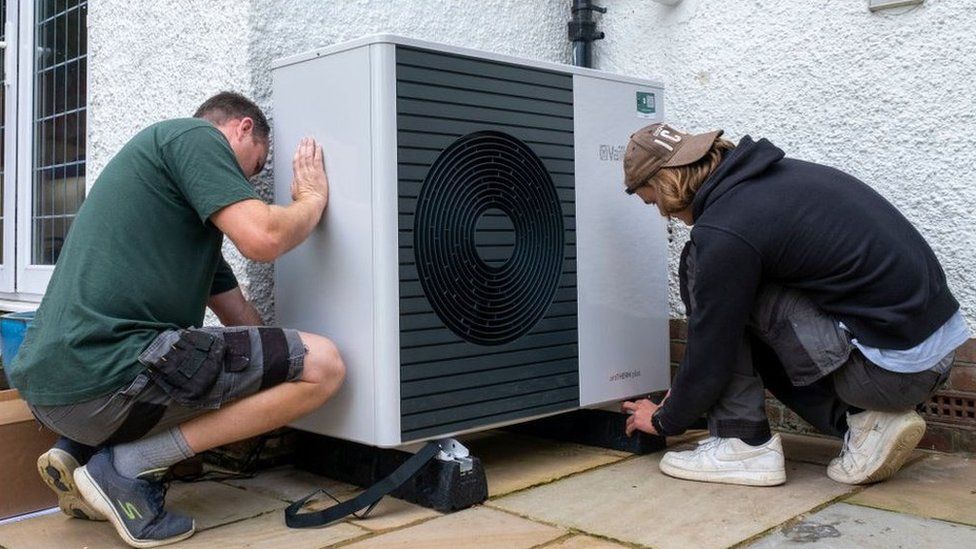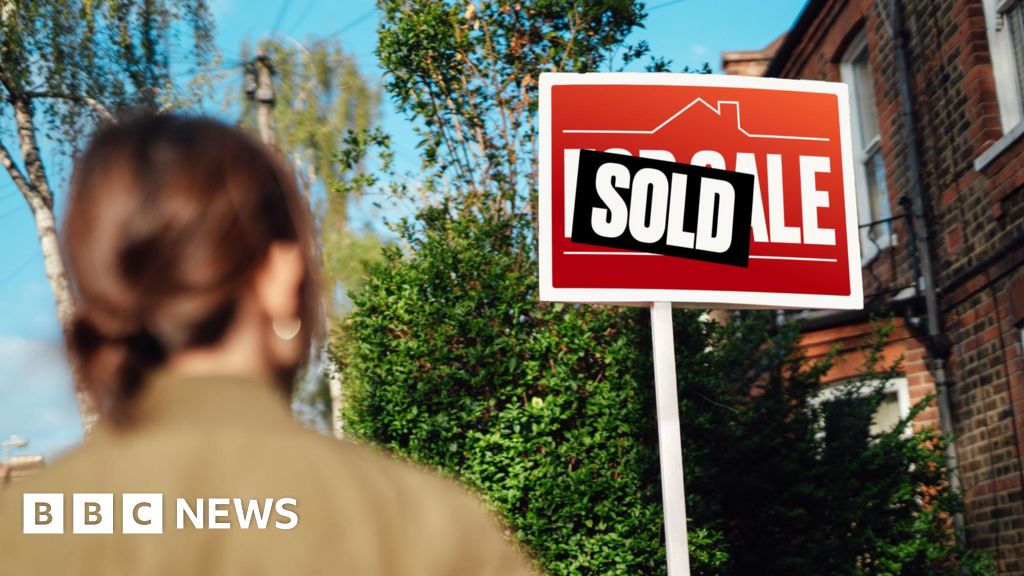ARTICLE AD BOX
 Image source, Getty Images
Image source, Getty Images
New gas boilers will be banned for most households from 2035, as the UK switches to heat pumps to help cut greenhouse gas emissions.
But despite the availability of grants of £7,500 in England and Wales, heat pumps remain too expensive and too few people know about them, the UK's spending watchdog has warned.
What are heat pumps and how do they work?
Heat pumps run on electricity instead of gas.
As the UK increases its production of electricity from renewable sources like the wind and sun, it is hoped that they will play a big part in cutting emissions.
Heat pumps warm buildings by absorbing heat from the air, ground, or water.
Air-source pumps, for example, suck in outdoor air and pass it over tubes containing refrigerant fluids to produce heat.
A box of about 1m x 1m x 0.4m stands outside the property. This should be at least 1m from your neighbour's property - if this is not possible, you can apply for planning permission.
You will also need space inside for a heat pump unit and hot water cylinder. The unit will be about the size of a gas boiler, while the cylinder depends on the size of the home.
A ground source heat pump is more efficient than an air source heat pump but less commonly used, as it needs a deep bore hole, or a horizontal system dug into the ground over a large area.
Heat pumps explained in 60 seconds
How much do heat pumps cost?
An air source heat pumps costs £10,000 more than a gas boiler on average, according to the National Infrastructure Commission (NIC).
But costs are coming down all the time and energy companies are offering some heat pumps for £500, with a government grant.
Can I get a grant to help pay for a heat pump?
In April 2022, the government launched a five year scheme to offer grants to households installing more environmentally friendly heating.
Grants are available to existing homes and non-domestic buildings in England and Wales, and can be used for:
- air source heat pumps
- ground source heat pumps
- water source heat pumps
- biomass boilers (for those living in rural areas)
The property must have an eligible Energy Performance Certificate (EPC) issued in the last 10 years.
Changes to the rules mean homes are no longer required to have existing loft or cavity wall insulation, which could save around £2,500 of upfront costs.
However, a well insulated home can help the heat pump to perform more efficiently.
The scheme is not available if you live in social housing or a new-build property. Private rented accommodation is also eligible but the landlord has to apply.
Scotland and Northern Ireland have separate schemes to help make homes more efficient.
Image source, Getty Images
Do I have to replace my boiler?
There is no requirement to replace your boiler currently.
However, the sale of new gas boilers will be banned from 2035, although poorer households will be exempt. The government has yet to announce what the threshold income for this will be.
As part of the government's Future Homes Standard, gas boilers will also be banned in new build homes from 2025.
So, if you purchase a new home after that date it will have a greener heating system like a heat pump.
The National Audit Office and the House of Lords Net Zero Committee have warned that the sale of heat pumps is too low for the government to meet its target of 600,000 heat pumps sold annually.
They have encouraged the government to increase public awareness and to provide further support to households beyond 2027, when the grant scheme ends.

 10 months ago
100
10 months ago
100








 English (US) ·
English (US) ·